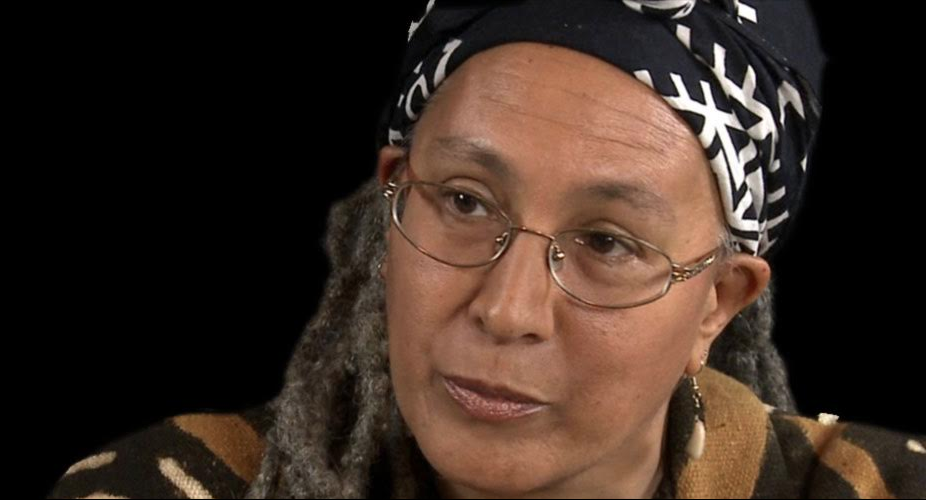Dr. Jessica Gordon Nembhard presents about African-American economic cooperatives
4 min read
Rocky Mountain Employee Ownership Center
By RHYS JOHNSON
Staff Writer
On Nov. 1, UMW hosted a presentation by Dr. Jessica Gordon Nembhard in Chandler Ballroom. Nembhard is a professor of community justice and social economic development in the Department of Africana Studies at John Jay College, City University of New York (CUNY). Nembhard spoke about her book, “Collective Courage: A History of African American Cooperative Economic Thought and Practice.” Written in 2014, the book delves into the socioeconomic success that African Americans past and present have achieved through the practice of cooperative (co-op) economics.
“Collective Courage” defines cooperatives as “companies owned by the people who use their services.” According to the book, “these member-owners form the company for a particular purpose: to satisfy an economic or social need, to provide a quality good or service….at an affordable price, or to create an economic structure to engage in needed production or facilitate more equal distribution to compensate for market failure.”
“I took up the challenge of finding some black co-ops so black people would stop telling me that we don’t do co-ops,” Nembhard said.
What she thought was going to be a two-year project ended up lasting 15 years. “There was so much information to find,” she said. “Everywhere I turned I kept finding more information.”
According to her book, there are seven principles and values of solidarity and self-help in cooperative economics: democratic participation, directors as members, open participation, limited compensation to capital (for-profit or not-for-profit), continuous education, concern for community, and cooperation among cooperatives.
“What did the co-ops accomplish for African Americans? Quality goods and services that they couldn’t get other places, saving costs, increasing income and wealth for people, combating racial discrimination,” said Nembhard. “A lot of co-ops were started because blacks were discriminated against in the market – either they couldn’t buy from certain stores or they couldn’t get certain food they wanted, because sometimes the supply stores that were owned by white supremacists were overcharging them.”
Nembhard says that the cooperative system has been championed by several prominent African American leaders, including W.E.B. DuBois. According to her, DuBois knew of the existence of 154 black co-ops and 20 credit unions by 1907.
“He’s actually where I first starting learning about co-ops in the black community,” said Nembhard. “He thinks that the saving grace for African Americans is to create cooperatives and cooperative communities and that blacks really need to create their own cooperatives where they control all the business and the wealth and sales so that we insulate and isolate ourselves to become strong and independent.”
Nembhard says the most famous black co-op is “a united black press group. That’s probably the most famous one because people would know it from black news even though they don’t know it’s a co-op.”
Nembhard mentioned another famous co-op, the Knights of Labor, which was the most prominent labor organization of the 1880s. The union brought unorganized black workers into the same group as white workers, making it one of the first integrated unions. At the 1886 KoL General Assembly in Richmond, race was the defining issue. The Knights boycotted a white-owned hotel that refused to lodge a black delegate, Frank J. Farrell from New York. The organization then chose this same delegate to introduce its leader at the convention’s opening.
Black co-ops survived in the face of significant prejudice and bigotry.
“The ones that survived it, it [sic] was because the communities around the co-ops supported them and helped them,” Nembhard said. “Often when they came under attack, it was the communities that made sure they stayed right. Sometimes the community literally got guns and stood in front of the co-op to protect it.”
Dr. Marion Sanford, director of the James Farmer Multicultural Center, attended the presentation.
“Certainly the work of Dr. Nembhard in the cooperative field certainly addresses a lot of the issues, the social justice issues that plague our society,” said Sanford. “As she mentioned tonight, there are a number of opportunities that can help relieve some of the injustices that are in place for a number of individuals and communities throughout the country. She gave a nice historical overview about how co-ops have been significant in addressing and improving the plight of a number of communities.”
Michael Barker, a senior majoring in business administration, was also present at the lecture.
“The lecture was actually a requirement for the cooperative class that we’re taking, but I did enjoy the presentation,” he said. “The cooperative movement was especially impactful for the African American community, specifically how it pertained to gaining equality and having a say in their governance and a means of participating in the economy.”
Barker, a Richmond native, connected with Nehmbhard’s comments about the Knights of Labor. “I thought it was great,” he said. “Especially with Richmond being the capital of the Confederacy, I think it’s especially significant that one of the first integrated cooperatives would have formed there.”


